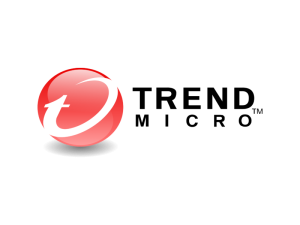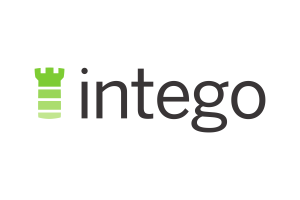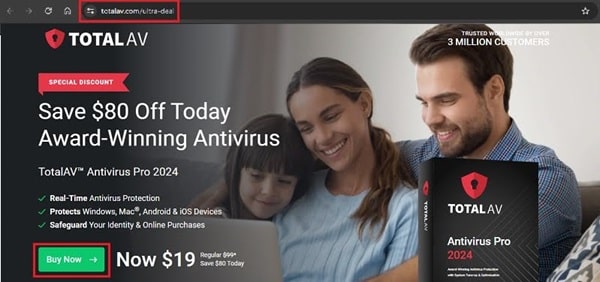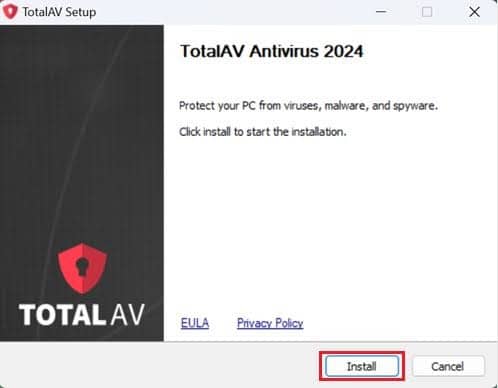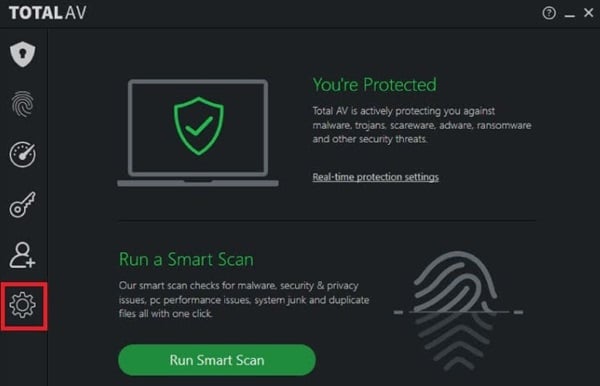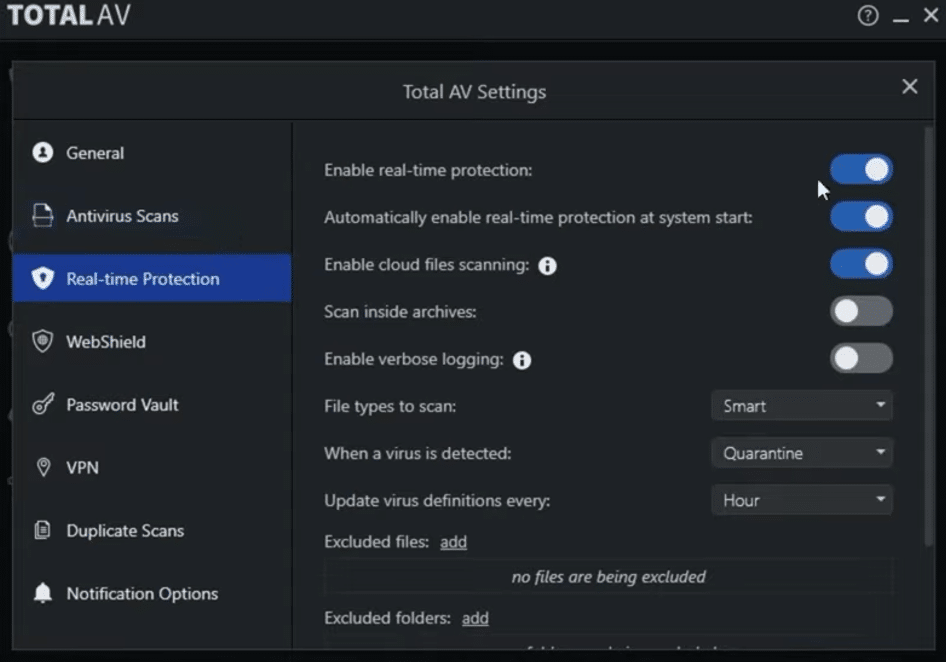The best antivirus software will ensure your system is protected against malware, spyware, and ransomware. Cybercrime cost American businesses and consumers more than $12.5 billion last year, so having protection in place is critical. Security solutions offer real-time protection and can stop suspicious activity on your device, flag dangerous websites and downloads, and block ransomware, adware, and phishing attacks.
I’ve tested and reviewed the best antivirus software available today and compared the top products on criteria such as scanning speed, online protection, value for money, and customer feedback, based on our comprehensive testing methodology. Read on to find the best virus protection software for your needs.
The Best Antivirus Tested By Our Experts
- Show Full Guide
TotalAV – Best Antivirus for Comprehensive Protection
| Starting Price | $19/year |
|---|---|
| Free Version/Trial | Free scans |
| Key Features | Antivirus Scanning, System Optimization, Web Protection, VPN |
| Compatibility | Windows, Mac, iOS, Android |
| Max Devices | 8 |
Pros
- Top-rated antivirus with an unlimited VPN
- Intuitive, modern interface
- System tune-up and optimization tools
- Excellent phishing protection
Cons
- Limited identity theft monitoring features
- Higher renewal prices
Surfshark Antivirus – Best Antivirus Protection with a Feature-Rich VPN
| Starting Price | $36.32/year |
|---|---|
| Free Version/Trial | 7-day trial for VPN |
| Key Features | Antivirus, High-Speed VPN, Ad Blocker, Email and Card Privacy Tools |
| Compatibility | Windows, Mac, iOS, Android |
| Max Devices | 5 |
Pros
- Top antivirus software with a secure VPN
- Minimal device performance impact
- Private search engine and data breach alerts
- Webcam protection
Cons
- Security tools limited to five devices
- Antivirus software isn’t included with the cheapest plan
Norton – Best Antivirus Software for PC
| Starting Price | $29.99/year |
|---|---|
| Free Version/Trial | 30-day trial |
| Key Features | Virus Protection Promise, Cloud Backups, Parental Controls, Identity Protection Tools |
| Compatibility | Windows, Mac, iOS, Android |
| Max Devices | Unlimited |
Pros
- Generous cloud backups
- Virus Protection Promise
- Robust firewall protection
- Protects unlimited devices with top-tier plan
- Best Reddit-recommended antivirus
Cons
- Slows down older devices during scans
- Entry-level plan protects only one device
NordVPN Threat Protection – Best Antivirus with a Global VPN
| Starting Price | $52.68/year |
|---|---|
| Free Version/Trial | 7-day trial on Android |
| Key Features | Global VPN Network, Web Protection, Ad Blocker, Password Manager |
| Compatibility | Windows, Mac, iOS, Android |
| Max Devices | 10 |
Pros
- Lightweight service
- User-friendly interface
- Excellent VPN, with a global network
- Includes password manager and ad blocker
Cons
- Can’t scan hard drives
- Limited free trial options
Trend Micro – Best Virus Protection with AI-Led Threat Detection
| Starting Price | $19.95/year |
|---|---|
| Free Version/Trial | 30-day trial, free tools |
| Key Features | Ransomware and Phishing Blocker, Web Protection, Password Manager |
| Compatibility | Windows, Mac, Android, iOS, Chromebook |
| Max Devices | 10 |
Pros
- AI-powered malware detection tools
- Range of free tools
- Superb ransomware protection
- Impressive browser extension
Cons
- No integrated firewall
- Basic plan limited to one device
Intego – Best Antivirus Software for Mac
| Starting Price | $37.50/year |
|---|---|
| Free Version/Trial | 30-day trial |
| Key Features | Built for Macs, Real-Time Protection, System Optimization, Firewall |
| Compatibility | Mac, Windows |
| Max Devices | 5 |
Pros
- Built-in two-way firewall
- Excellent malware detection rates
- Easy to install and use
- Best malware antivirus for Apple users
Cons
- Fewer features for Windows
- No direct protection for smartphones
Avast – Best Free Antivirus Software
| Starting Price | $35.88/year |
|---|---|
| Free Version/Trial | Free plan, 30-day trial |
| Key Features | Sandbox Testing, Webcam Protection, File Shredder, Web Security |
| Compatibility | Windows, Mac, Android, iOS |
| Max Devices | 30 |
Pros
- High antivirus detection scores
- Automatic software updater and boot scan
- Excellent free plan
- Wi-Fi network safety analysis
Cons
- May slow down lower-end devices
- Confusing pricing structure
McAfee – Best Antivirus Software for Windows 10
| Starting Price | $29.99/year |
|---|---|
| Free Version/Trial | 30 day trial |
| Key Features | Protection Score, Social Privacy Manager, System Optimization, Identity Protection Tools |
| Compatibility | Windows, Mac, Android, iOS |
| Max Devices | Unlimited |
Pros
- Protection Score for quick security assessments
- Numerous identity theft protection features
- Identifies links to malicious sites before you open them
- Easy to install and use
- Among the best Windows antiviruses
Cons
- Relatively basic VPN
- Need to upgrade for the best value for money
How We Review And Test Antivirus Software
15 Antiviruses Tested
20 Datapoints Measured
300+ Hours Testing
500+ User Reviews Read
We base our recommendations on first-hand experience and in-depth testing. All the Antivirus products we suggest, have been tested based on the following criteria:
- Core Security Features: We make sure that the antivirus software is fully equipped with features like real-time protection, scanning, a firewall, web protection, and more.
- Malware Detection Rates: We test malware detection rates ourselves by running both in-depth and quick scans on our devices. Additionally, we check independent lab tests.
- Compatibility: We check which devices and operating systems the antivirus software is compatible with. Often, different-looking dashboards and slightly different packages of features may be available.
- Performance Impact: A reliable and functional antivirus should not slow down your device significantly. So, we examine our device performance with and without the antivirus running.
- Customer Experience: Alongside our own experience, we are curious to know what real users have to say regarding the services. So, we’ve scoured the web for feedback on each of our tested antiviruses.
- Value for Money: We always consider value for money and how much each product is offering for the set price point.
Do I Need Antivirus Software? What Is It?
And there’s plenty to be afraid of, whether it’s hackers stealing the passwords for your bank account or unscrupulous individuals locking your computer and holding it to ransom.
The very least you should worry about is the risk of malicious actors hijacking your bandwidth and processing power for botnets and crypto mining – though this can make your device inoperable. More serious threats include identity theft and fraud, with hackers cloning your credit cards and taking out loans in your name.
Given this, it’s critical to have robust antivirus protection in place.
How Does Virus Protection Work?
Today’s leading antivirus products protect you from viruses in several distinct ways.
- Scans – Antiviruses scan your device for viruses and malware using a directory of known threats. They will then quarantine and remove suspicious files and software.
- Network Security – Most security products will provide a firewall to monitor incoming and outgoing traffic. This will detect concerning network activity and data being extracted from your devices.
- Real-Time Protection – Top antivirus solutions will offer real-time protection, which monitors software and system behavior to detect suspicious activity. This allows the security app to find and block infected files and to identify previously unknown threats.
- Downloads – Many malware protection packages can also scan files before you download them to stop your device from being infected.
Will an Antivirus Slow Down My Device?
Antivirus software should generally have minimal impact on your device’s performance. I’ve looked at independent, third-party testing results as part of my review process, and my picks have performed well when it comes to having a limited impact on system resources.
Of course, you can also schedule scans to only run when it’s convenient. In addition, the best antiviruses include system optimization tools to ensure your software is up-to-date and running as efficiently as possible – which can have your machine running as good as new.
Having a malware infection, on the other hand, can cripple your device and leave you open to identity theft and fraud. Because of this, it’s a far better option to have an antivirus solution in place than to do without.
What Does Antivirus Software Do? What Threats Will It Block?
An antivirus program can shield you from a wide range of online threats. These include:
Viruses
Viruses are self-replicating pieces of malware that seek to infect computers and spread. While viruses once only sought to create disruption, they’re typically used by criminals today to gain access to devices and to steal individuals’ personal details.
This might result in the device being used as part of a botnet or for cryptomining – or it might see a hacker attempting to steal your identity or access your bank accounts.
Experts have recorded more than 1.1bn pieces of malware circulating on the internet. This is an ever-increasing number, with 100m threats added to the count every year.
Just being online puts you at risk of being infected with a virus, but antivirus software products reliably protect computers against viruses.
Spyware
Spyware is a kind of malware that infects your device and spies on your activity to steal your personal data. This could include everything from passwords and credit card information to your financial details.
Some spyware programs will allow hackers to access your apps, use your microphone and camera, and disable your device. Fortunately, antivirus software can help shield you from such spyware attacks.
Ransomware
In ransomware attacks, hackers gain access to systems and then encrypt files before demanding payment to release them.
This can be extremely damaging for businesses and organizations working with irreplaceable sets of data, including everything from small firms and hospitals to government bodies and charities.
Antivirus security apps can protect against this type of threat in several ways. For example, they can flag phishing emails that could expose users to malware, provide secure backups to ensure files can be replaced, and proactively prevent programs from encrypting files and folders.
Phishing
Phishing attacks attempt to trick people into handing over their payment details to fraudsters via malicious domains. It may be sufficient, though, for the hackers to simply get you to click on a link or download a file for them to infect your device with malware.
Antiviruses can flag potentially dangerous links in emails and malware files attached to messages, keeping you safe from fraudsters.
Spam, Ads, and Adware
Pop-up advertising and spam websites are two of the most common ways for viruses to access your device and corrupt your files. Once a virus manages to enter your system, it does permanent damage.
Antiviruses can block these spam emails and advertisements. Many have ad and tracker blockers, which save you time, processing resources, and bandwidth and help to protect your privacy.
Premium solutions also offer monitoring services for your social media accounts and banking services to provide additional layers of protection.
Free vs Paid Antivirus – Is Free Antivirus Enough?
The main difference between free and paid antivirus tools is the level of protection that they provide. Free tools provide basic protection, but paid plans offer additional features and provide multi-layered security defenses.
Avast is one of the most widely used antivirus software products, for example, but you get a lot more from the provider if you upgrade.
“A paid plan is an excellent investment in digital security if you handle sensitive data or use a computer for work. A free antivirus tool may be viable if you’re just using your computer to check email, read the news, and watch Netflix. However, you should consider upgrading to a paid version for advanced features and protection against ransomware and phishing attacks.”
Free plans often come with advertising or frequent reminders to upgrade. Some providers have even been found to be monetizing their products by selling user activity data to third parties.
An even worse scenario is to download malware disguised as antivirus software, which can then infect your network and start harvesting your data.
Because of this, it’s a smart choice to pay for a paid plan from a reputable provider so you can ensure your device, data, and identity are protected.
Is Windows Defender Good Enough?
Microsoft Defender – formerly known as Windows Defender – is Microsoft’s built-in antivirus solution for Windows 10 and 11. It provides a reasonable degree of security, with real-time protection, a firewall, and antivirus scans.
However, it doesn’t provide advanced security solutions or the additional features offered by commercial providers, such as a password manager, secure storage, or a VPN, and it doesn’t include robust protection from phishing or ransomware attacks.
In addition, it can only protect a single Windows device and can’t protect your phone or other hardware.
A key benefit, though, is that the software makes it easy to deactivate its features when other antivirus software is installed. This means you don’t have to worry about the programs coming into conflict or unecessarily slowing down your system.
How to Choose the Best Malware Protection Program
There are a variety of different factors that can make a big difference when it comes to choosing the right antivirus software for you and your devices.
Here’s a breakdown of some of the most important factors to consider for computer protection, whether you’re looking at Bitdefender Antivirus Plus, Trend Micro Maximum Security, or other antivirus providers:
Detection Rates
The most important factor to consider when selecting an antivirus software solution is how well it can protect your device against current and future threats.
With tons of great options on the market that can deliver protection rates significantly above 95%, there’s no reason to settle for services that do less – and the best tools will consistently catch and quarantine threats with few false positives.
It’s also worth considering that if you’re using a free service that has poor detection rates, then you’re likely exposing yourself to threats and compromising the security of your device.
Privacy
Some companies gather information on how you use your computer to enhance their products. While simple product use information is normally anonymized, some products may transfer suspicious documents to the vendor’s scanning cloud from your computer.
I recommend looking for a vendor that provides guarantees about the secure and appropriate handling of your files and data to minimize the chance your privacy may be breached. The best virus protection products will ensure your system remains secure and private.
Some providers, such as Surfshark, offer both antivirus and VPN features, providing additional privacy and security for your internet connection.
Additional Security Measures
While it’s important to have malware protection and a firewall, many of the top antivirus programs offer more than that. For example, you might look for support across browsers and devices and additional services, such as a VPN or a password manager.
Getting this functionality bundled with your anti-virus software adds convenience while making you more secure, and it might also save you money, meaning you don’t have to run up additional subscription costs.
Ease of Use
The usability of antivirus apps is another important factor. While some applications might be complicated to use, others are simple.
Antiviruses should make it easy to run full system scans or to scan a single file. See our guide on how to check a file for viruses to see just how simple it can be.
In the past, some antivirus programs had a negative impact on device performance, but the entries on my shortlist generally have minimal system impact.
Try to find a security program that you feel at ease with – if you don’t use it or don’t make full use of it, you’re likely leaving yourself open to threats.
Before paying for a subscription, you can take advantage of free trials and money-back guarantees to test the platform and make sure you’ve got a grip on the product.
Support
Customer service can make a big difference when looking at anti-virus software.
If you’re trying to remove a malware program that has made it through your firewall or you’re trying to optimize your antivirus, which seems to be consuming your entire CPU, then it’s good to be able to get ahold of expert assistance.
Look for tools with 24/7 customer support and multiple support channels, like live chat, email, and toll-free numbers. If a service has a reputation for poor support, then it may be worthwhile to cut it off your list.
What Devices Can Antivirus Security Software Protect?
Most antivirus companies provide solutions for a range of different operating systems and devices. Here’s what to look for:
- Best Windows Antivirus – Antivirus firms typically offer robust solutions for PCs. I rate TotalAV, McAfee, and Norton as being some of the best options.
- Best Antivirus for Mac – While Apple devices might be more secure than PCs, Macs can get viruses and are susceptible to malware and virus attacks today, so it’s advisable to buy an antivirus product. Intego is a top-rated solution for Macs and MacBooks and can scan your iPhone as an external drive.
- Best Antivirus for Android – It’s wise to get protection for your mobile device. TotalAV, Surfshark, and Norton are top picks for Android security.
- Best Antivirus for Chromebook – Chromebooks can get infected too. TotalAV, Norton, and NordVPN Threat Protection are some of the best security solutions for keeping your device secure.
- Best Linux Antivirus Software – Few providers offer consumer solutions for securing Linux, but Bitdefender, Trend Micro, and ESET are excellent business solutions for the platform.
- Best Server Antivirus – Keeping your server free of malware is critical for businesses. I rate Avast, Trend Micro, and ESET as some of the best providers to protect you.
How to Use Antivirus Software
Getting started with antivirus software is relatively simple, but the process can be confusing. Here’s a guide with step-by-step instructions for setting up TotalAV and running a scan.
Get a TotalAV account
First, go to TotalAV, click Buy Now, and select the appropriate plan for your needs. The basic plan is sufficient for most users, but you can upgrade to get a password manager and VPN. Click Purchase & Agree to complete your purchase.
Download and Install TotalAV
With the purchase complete, you can now download the app. Once that’s done, follow the install wizard’s instructions to finish the process. You can now use your login details to access your account.
Run your first scan
With TotalAV installed and set up, you can scan your device and make sure that your operating system is secure. You can pick from a smart scan or a full system scan. It’s smart to run a full scan to ensure your device is comprehensively checked as soon as you install the software.
With that, you’re good to go, and TotalAV will offer real-time protection, regular scans, and complete online security.
To schedule scans, go to the Settings cog on the left, select Antivirus Scans, then fill in the details you want, selecting the scan type, frequency, and any files or folders you want to be excluded.
To ensure real-time protection is enabled, click the TotalAV icon on the left, then check the Real-Time Protection toggle on the following screen.
You can find the settings for the WebShield firewall by clicking on the fingerprint icon on the left, clicking WebShield, then checking the Enable WebShield button. This ensures you’re protected while using the internet.
If you have the Internet Security plan, you can also access the VPN from the left menu, as well as Total Password, which is included with the top-tier Total Security plan and as a separate product.
FAQs
What is the best antivirus?
What is the most widely used antivirus software?
What’s the best antivirus software, according to Reddit?
What’s the best free antivirus software product?
What’s the best antivirus for Windows 10 and 11?
Which is better, McAfee or Norton?
How safe is AVG antivirus?
What’s the best antivirus for ransomware protection?
Which antivirus program is 100% effective?
References
- AV-Comparatives Malware Protection Test March 2024 (AV-Comparatives)
- Avast Free Antivirus test results (AV-Test)
- Norton Internet Security test results (AV-Test)
- Better Malware Ground Truth: Techniques for Weighting Anti-Virus Vendor Labels (AISec)
- Share of respondents using antivirus or internet security software in the United States from 1st half 2016 to 2nd half 2017, by device (Statista)
- AV-Atlas – Malware and PUA (AV-Atlas)
- Annual amount of monetary damage caused by reported cybercrime in the United States from 2001 to 2023 (Statista)
- Surfshark Antivirus test results (AV-Test)

